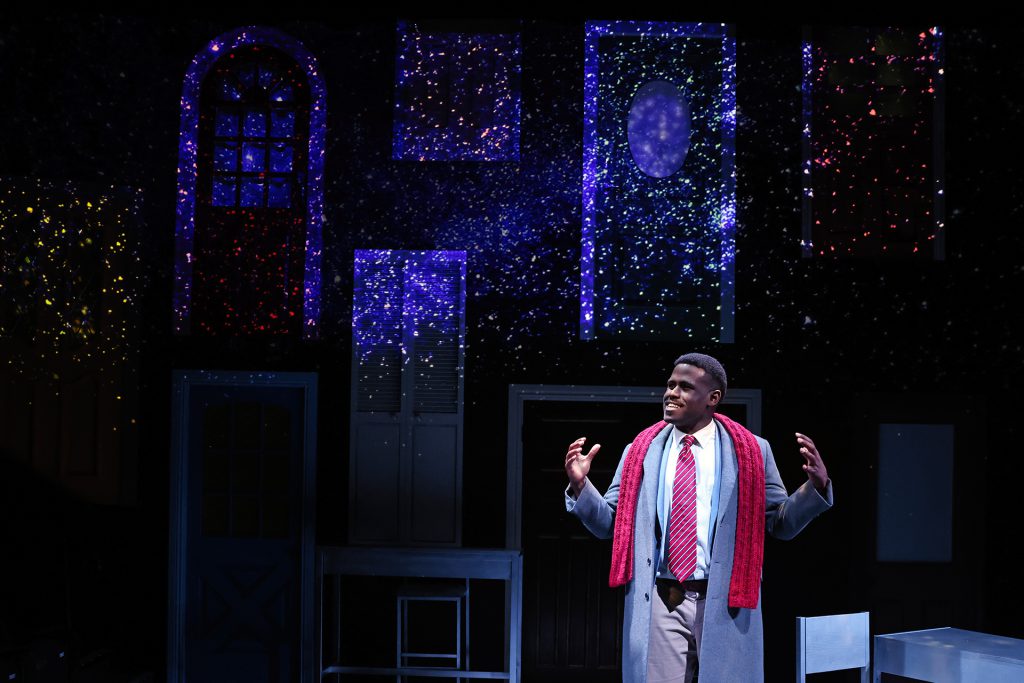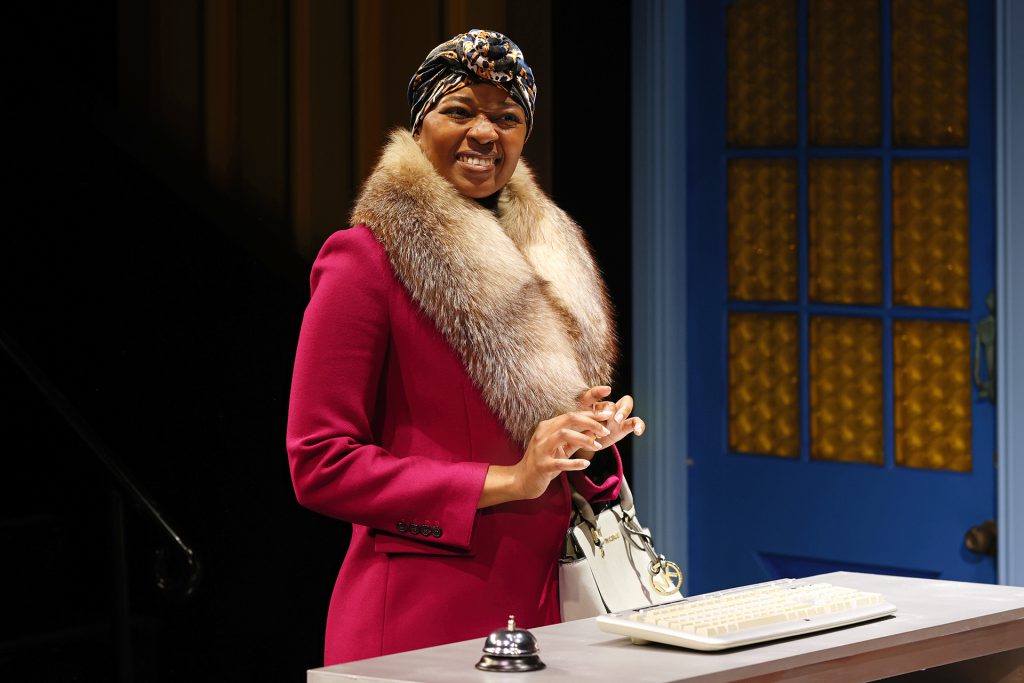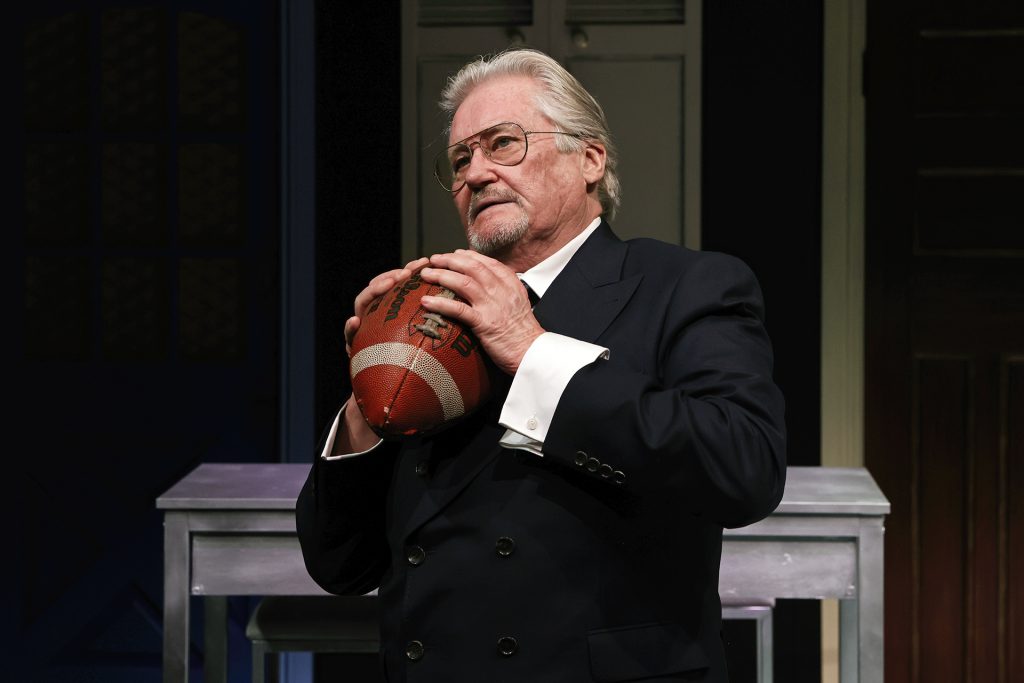An uplifting story we could all use right now.
Primary Trust, produced by Ensemble Theatre, is a heartfelt show about emotional connections, kindness, and the support networks we don’t realise we have. Well directed by Darren Yap, its nuanced exploration of childhood trauma and abandonment is profound and thought-provoking. Though the cast’s performance is rough around the edges, the production’s warmth ensures that its story is told with great care, affection, and success.

Primary Trust is primarily about its lead’s emotional and psychological maturation. Kenneth (Albert Mwangi) is an orphan who isolates himself from society. He spends his days working in a mom-and-pop bookshop and his evenings at Wally’s, a corny Tiki bar in New York. Kenneth’s only companion is Bert (Charles Allen), the imaginary friend he has lengthy (and sometimes intense) discussions with. When the bookshop is sold and Kenneth is out of a job, he must deal with the trauma that underlies his isolation.
Mwangi portrays Kenneth’s trauma well, from the attachment issues Kenneth has to his explosive outbursts reflecting the anger of an orphaned child. The way he displays Kenneth’s maturation and recognition of the faith others have in him is satisfying, with a particularly nice climax that forces Kenneth to grapple with his alienation. Mwangi himself is a charming actor with great expression and cordial presence, but his performance in this show is unrefined. He seems nervous on the stage, garbling some dialogue and forgetting it at one point. Whether that’s due to a lack of confidence or preparedness is unclear, but does leave more to be hoped for.

Allen matches Mwangi’s energy, albeit with a bit more polish. However, the supporting cast really bring the show to life. Angela Mahlatjie and Peter Kowitz play a revolving door of minor characters, from different Wally’s waitresses to the boss at Kenneth’s new job. Adopting new accents and costumes for these roles, their comical characterisation keeps the play light. Of particular note is Kowitz’ scene-stealingly absurd physicality, cadence and voice work, which allows him to downplay some unclear dialogue, and Mahlatjie’s embodiment of different customers at Kenneth’s job.

Darren Yap’s direction lets the play’s themes resonate. Despite employing some tacky visual projections, he shows that Kenneth is a deeply traumatised, fascinatingly complex character ignored by society, and Bert is his coping mechanism. At the same time, Yap cleverly details the support networks around Kenneth which he does not see. Kenneth’s eventual recognition of these networks, emotional growth, and dwindling need for Bert or Wally’s is captured sincerely and honestly. In doing so, Yap reveals that we are more connected to others than we realise, we do not need to deal with our issues alone, and that there is always someone rooting for us. The audience sees these in Kenneth and has the capacity to do the same in their own lives, thanks to what Yap has achieved.
Ultimately, Primary Trust is a well-told story. There are shortcomings, but these do not detract from the impact of what is presented. Kenneth’s win in the narrative is a win for the audience too, and resultingly a win for Ensemble.
